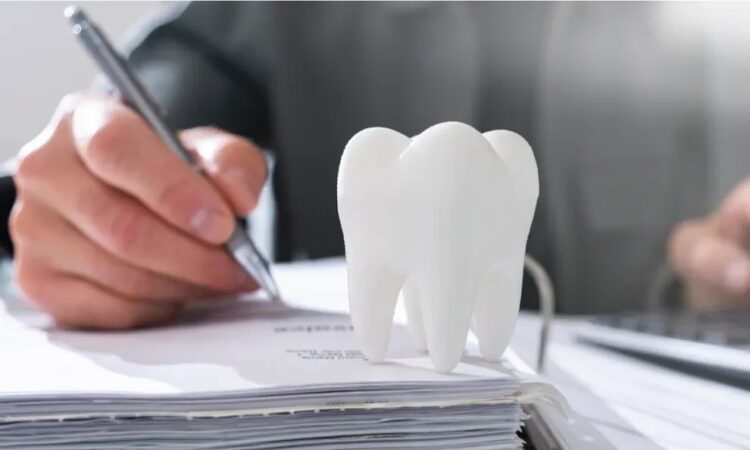
Employee coverage in teeth whitening liability insurance typically refers to the protection provided for employees of a dental practice or cosmetic clinic against certain liabilities that may arise in the course of their employment. This secureline insurance coverage is essential for safeguarding both the employees and the business itself from financial losses due to legal claims or incidents. Here’s a detailed look at what employee coverage involves in teeth whitening liability insurance:
Types of Employee Coverage:
- Workers’ Compensation:
- Definition: Insurance that provides benefits to employees who suffer work-related injuries or illnesses.
- Coverage: Pays for medical expenses, lost wages, and rehabilitation costs for employees injured on the job.
- Legal Requirements: Mandatory in most states for employers with employees, including those in dental or cosmetic practices where teeth whitening services are performed.
- Employee Practices Liability Insurance (EPLI):
- Definition: Coverage for claims made by employees alleging wrongful employment practices.
- Coverage: Protects against claims of discrimination, harassment, wrongful termination, and other employment-related issues not covered by general liability insurance.
- Importance: Helps defend against legal expenses and settlements arising from employment-related claims.
- Professional Liability for Employees:
- Definition: Coverage for claims alleging professional negligence or errors committed by employees in the course of performing teeth whitening procedures.
- Coverage: Protects both the employee and the employer from financial liabilities arising from professional mistakes or alleged malpractice.
- Scope: Ensures that employees are covered for claims related to their professional duties within the scope of their employment.
Importance of Employee Coverage:
- Legal Protection: Shields employees from personal financial liabilities resulting from work-related incidents or claims.
- Business Continuity: Minimizes financial impact on the business by covering legal expenses and potential settlements or judgments related to employee actions.
- Compliance: Ensures compliance with legal requirements for providing workers’ compensation and other mandatory employee protections.
Considerations for Teeth Whitening Practices:
- Coverage Limits: Evaluate the adequacy of coverage limits to protect against potential claims and legal expenses.
- Policy Terms: Review insurance policies to understand specific coverage for employees, including exclusions and conditions that may apply.
- Risk Management: Implement workplace safety protocols, training programs, and employee policies to reduce the likelihood of workplace injuries or employment-related claims.
- Legal and Insurance Advice: Seek guidance from legal advisors and insurance professionals specializing in dental or cosmetic liability to ensure comprehensive coverage and compliance with regulatory requirements.
Employer Responsibilities:
- Legal Compliance: Adhere to federal, state, and local regulations concerning workers’ compensation, employment practices, and employee rights.
- Risk Mitigation: Proactively address workplace hazards, maintain proper documentation, and provide adequate training to minimize risks to employees and protect the business.
By securing appropriate employee coverage within teeth whitening liability insurance, dental practices and cosmetic clinics can mitigate financial risks associated with employee-related claims, ensuring both employee welfare and business sustainability.
What Are the Renewal and Cancellation Terms Involved?
Renewal and cancellation terms in teeth whitening liability insurance outline the conditions under which the policy can be renewed for subsequent periods or terminated before the end of the policy term. These terms are important for insured parties to understand to ensure continuous coverage and manage their insurance arrangements effectively. Why not click here for teeth whitening insurance UK for an overview of what renewal and cancellation terms typically involve in teeth whitening liability insurance:
Renewal Terms:
- Automatic Renewal:
- Some insurance policies may automatically renew at the end of the policy term unless either party provides notice to cancel.
- Renewal terms may specify changes in premiums, coverage limits, or deductibles for the new policy period.
- Notice Requirements:
- Insurers may require policyholders to provide advance notice (e.g., 30 to 60 days) of their intention to renew or not renew the policy.
- Failure to provide timely notice could result in automatic renewal or lapsing of coverage, depending on the policy terms.
- Premium Adjustments:
- Renewal terms may include adjustments to insurance premiums based on factors such as claims history, changes in the insured’s practice size or location, or adjustments in coverage limits.
- Review and Underwriting:
- Insurers typically review policyholders’ claims experience and risk profile during the renewal process to determine if any changes are warranted in coverage terms or premiums.
Cancellation Terms:
- Voluntary Cancellation:
- Policyholders may choose to cancel their teeth whitening liability insurance policy at any time by providing written notice to the insurer.
- Cancellation requests should specify the effective date of cancellation, which is usually after a specified notice period (e.g., 30 days).
- Insurer’s Right to Cancel:
- Insurers typically retain the right to cancel a policy under certain circumstances, such as non-payment of premiums, misrepresentation of information, or significant changes in risk exposure.
- Cancellation by the insurer usually requires advance notice to the insured, often within a specified timeframe (e.g., 30 days), unless due to non-payment of premiums.
- Pro-rata Refunds:
- If the insured cancels the policy before the end of the policy term, insurers often provide a pro-rata refund of premiums for the unused portion of the policy period.
- Insurers may deduct administrative fees or short-rate penalties from the refund amount, depending on the terms of the policy and state regulations.
Considerations for Policyholders:
- Review Terms Carefully: Understand the renewal and cancellation terms outlined in the insurance policy documents to avoid unintentional lapses in coverage or unexpected premium changes.
- Communication: Maintain open communication with the insurer regarding any changes in practice operations, claims experience, or other factors that could impact policy renewal or cancellation decisions.
- Seek Professional Advice: Consult with insurance advisors or brokers specializing in dental or cosmetic liability insurance to navigate renewal and cancellation terms effectively and ensure adequate coverage continuity.
Legal and Regulatory Aspects:
- Insurance policies and cancellation rights are subject to state insurance laws and regulations, which may impose specific requirements regarding notice periods, refunds, and reasons for cancellation.
By understanding and adhering to renewal and cancellation terms in teeth whitening liability insurance, practitioners can maintain continuous coverage, manage insurance costs effectively, and protect their practices from potential financial risks associated with liability claims. Regular review of insurance policies and proactive communication with insurers are key to ensuring that coverage meets evolving business needs and regulatory requirements.
Attorney Sean P. Sullivan has over 10 years of experience in the fields of family law and business law. He and the DuPage County divorce attorneys of SBK Law Group provide dedicated representation for clients, helping them resolve highly contested disputes and find effective solutions to their legal issues.





